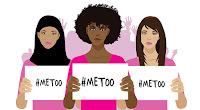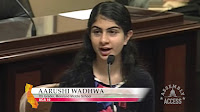
Conflicts have been there as long as there has been life. Darwin’s theory of survival of the fittest meant that there will be inevitable conflicts and only the best would survive. With the evolution of societies, intellect and world order, hope was that these conflicts will reduce, and peace will prevail. However, in today’s world, plethora of conflicts remain, and it is more important than ever to spread peace and harmony.
Peace is a state of non-suffering and celebration of life. It is the desire of every beating heart. Peace is the hope of every nation, the promise of every politician, the pulse of every religious tradition, and the goal of every prayer. It is a crucial part for a functioning society. An absence of peace leads to war, which can possibly lead to the downfall of a civilization. Essentially, where there is compassion, there is peace; where there is peace, there is stability; and where there is stability, there is progress.
We all must be in peace with each other, respect different beliefs, traditions, and appearances and resolve conflicts without violence. We need to take care of our environment and respect plants and animals. Inner peace is also equally important, as one need to be happy and calm from within before being in peace with your surroundings. As author, poet, and teacher, Stephen Levine, once said, “Let there be peace on Earth and let it begin with me.”
In 1981, September 21st was established as the International Day of Peace and is now observed as a period of non-violence and cease-fire. The United Nations invites all nations and people to honor a cessation of hostilities during the day, and to otherwise commemorate the day through education and public awareness on issues related to peace. To that end, several organizations such as Flame of Peace, Pathways to Peace, and Living Peace, strive to promote public awareness and world peace.
Every year, United Nations works with a global peace organization for an art competition, where youth around the world are invited to showcase their artwork. This year, they have partnered with Living Peace International for the art competition aptly themed as “Living Peace.”
 To me, living in harmony with diverse people, respecting various religions and cultures, helping each other and taking care of environment is living in peace. Keeping myself cool and composed and in peace with my inner-self is living in peace. There will always be conflicts but managing those disagreements is peace to me.
To me, living in harmony with diverse people, respecting various religions and cultures, helping each other and taking care of environment is living in peace. Keeping myself cool and composed and in peace with my inner-self is living in peace. There will always be conflicts but managing those disagreements is peace to me.
“Peace is not the absence of conflict, it is the ability to handle conflict by peaceful means.”


















